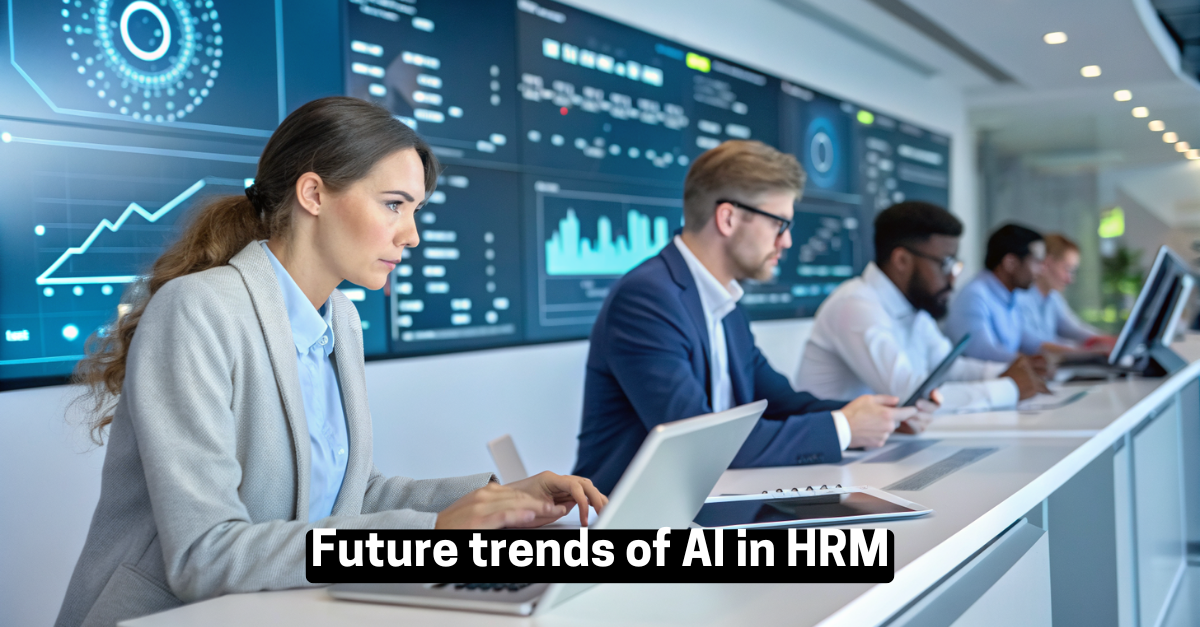The landscape of human resource management is going through a remarkable transformation, and all thanks goes to artificial intelligence. Today, AI in HR management is no longer a new thing as it has become an integral part of how organisations recruit, engage, and retain talent. And as we are moving towards the future, the role of AI in HRM is continuously expanding and creating smarter and data-driven HR practices.
Today, in this article, we will explore what will be the future trends of AI in HRM, the impact of AI in HRM, and how businesses can take advantage and stay ahead in the game.
-
Hyper-personalisation across the employee life cycle –
Let’s begin with one of the most exciting trends, which is hyper-personalisation. With the help of AI-powered analytics, HR teams can offer a tailored experience at every stage to the employees. From recruiting to onboarding, AI can analyse all employee preferences, their behaviour, and performance data to create a personalised experience.
- Onboarding experience
- Training modules
- Career development plans
- Feedback and engagement strategies
This is how employees start feeling more valued with significant increases and boost their motivation and retention rate.
2. Predictive workforce planning –
Another significant and important use of AI in HRM is predictive analytics. The AI tools have the power to forecast future workforce requirements with accuracy, which includes.
- Identifying skill gaps
- Anticipating hiring needs
- Optimising talent distribution
3. Generative AI for smarter HR content-
Coming to the next AI in HRM has revolutionised the content creation process. The tools like ChatGPT and other AI models can assist in the following.
- drafting job descriptions
- Writing policy documents
- Designing and learning materials
- Automating employee communication
It not only saves time but also has high-power consistency and professionalism in all HR documents.
4. AI-driven diversity and inclusion
Another major impact of AI in HRM is promoting fairness and equity. AI eliminates unfair decisions and unconscious bias.
- Hiring and promotion
- Performance reviews
- Compensation decisions
AI is continuously monitoring diversity and inclusion metrics and suggesting strategies that can foster a more inclusive workforce culture.
5. Ethical AI and data privacy in HR
With the increase of AI, there are chances of an increase in ethical hacking and data protection. Therefore organisation must ensure that AI in HR management is-
- Transparent and explainable
- Free from bias and discrimination
- Complaint with data privacy regulations
Therefore, it is very important for HR leaders to collaborate with legal and IT teams to implement ethical AI practices to build trust and security.
-
Seamless integration with the enterprise system
As AI in HRM evolves and becomes more interconnected, In the future AI AI-driven HR systems will have the power to seamlessly integrate with EPR, CRM, and other business tools. Integration allows the HR team to
- Gain a 360° view of employees and business performance
- Enhance cross-functional collaboration
- Make better strategic decisions
Here for this brand supports an agile and responsive HR ecosystem
-
AI-powered employee well-being programs
Nowadays, employee well-being remains the top priority for all organisations. By analysing employee sentiment behaviour patterns and engagement level, AI can-
- Detect signs of burnout
- Recommend personalisation of well-being programs
- Monitor emotional health trends
Can AI in HR management give a healthier and happier environment?
-
Smarter AI agent and virtual HR assistant
Now you can expect a more intelligent virtual assistant in HR. These AI-powered chatbots can-
- Answer HR related queries
- Guide employees through on boarding
- Help with benefits like leave and payroll queries
And most importantly these assistance available 24/7 increasing the employee experience and reduces the administrative load on HR.
Final thoughts-
The future of AI in HRM is continuously evolving and will bring more innovation across all the areas of HR. Hence the role of AI in HRM is no longer optional as it is becoming an integral part of all the organisations.
Therefore staying updated on these trends can unlock the full potential of AI in their HR strategies and can build a more dynamic and high-performance workplace.



